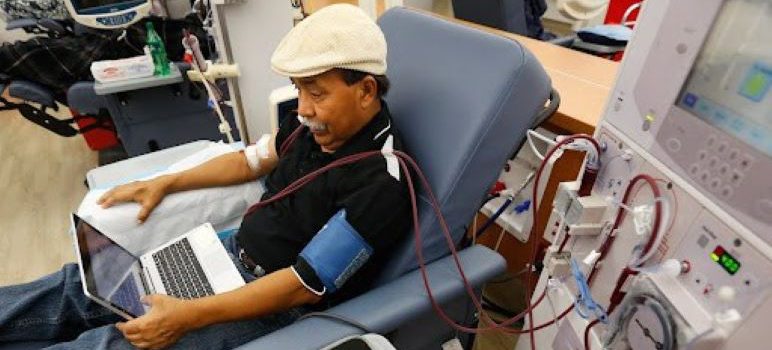It’s no surprise that California health care workers have questions about a new state law that will give them a higher minimum wage. It has different pay scales based on where they work and who they work for.
And, Gov. Gavin Newsom has turned its start date into a moving target, confusing both workers and employers.
Last fall, Newsom signed a law that phases in pay increases for the state’s lowest-paid health workers to $25 an hour. The labor union SEIU California advocated for Senate Bill 525, lifting the pay floor for hundreds of thousands of workers.
It mandated that employers must begin raising wages by June 1, but just hours before the deadline, Newsom signed a second piece of legislation delaying the raises to July 1.
Those extra 30 days are supposed to give the administration and the Legislature time to hash out an agreement that would essentially tie wages to the state’s fiscal health. Newsom asked for the change because his administration estimates this law will cost the state $4 billion. And, if you’ll recall, the state is facing a projected $28 billion deficit.
Amid the uncertainty, some employers went ahead and raised wages. Others are still waiting to hear the latest guidance from the state. In the months since the law passed, workers and employers have been seeking help to decipher it. They want to know if the new law applies to them, and if so, when they should expect their pay boost.
CalMatters has spoken with SEIU, employers and researchers who have analyzed the law. Here is what they said.
Which wage structure applies to me?
As designed, the minimum wage increase isn’t supposed to come all at once. Workers will reach the $25 hourly pay rate over a number of years, and some sooner than others.
How soon employees reach $25 largely depends on the type of facility they work in and the size of their employer.
For example, workers at the state’s 12 largest health systems — such as Dignity Health, Sutter, Adventist and UC Health — will start their pay increase at $23 an hour.
Employees at rural and independent hospitals will start at $18. Here is where some health settings fall in the wage schedule:
My employer says there will be no minimum wage increase at skilled nursing facilities. Is this true?
It depends. Skilled nursing facilities, or nursing homes, are included if they are part of a large hospital or health system. Stand-alone skilled nursing facilities are exempt for now.
That’s because the law states that stand-alone nursing homes will be included only when the state sets a standard dictating how much of nursing homes’ revenue must be spent on patient care. Assembly Bill 1537 by Assemblymember Jim Wood seeks to set that standard. If that bill becomes law, it would close this loophole and compel stand-alone skilled nursing facilities to raise their wages to $21 an hour and eventually to $25 by 2028.
What types of workers qualify for a raise?
Approximately 426,000 workers are expected to benefit from the law, according to the latest estimates from the UC Berkeley Labor Center. This includes medical assistants, front office staff, medical billing personnel, patient techs, janitors, food service workers, among others.
The law also applies to contracted workers who work primarily on-site at an eligible facility.
I was told the law only applies to workers in unionized health care institutions. Is this true?
No. The law applies to all low-wage health workers who are employed by a facility that is subject to the law, regardless if they are unionized or not.
Can employers opt out of this law?
Certain health facilities, primarily clinics, will be allowed to apply for a temporary pause from the wage requirements if they can demonstrate that the mandated raises would result in financial strain that could lead to cut in services, job losses or closure of the facility. The California Department of Industrial Relations is tasked with developing this waiver program.
So when can I expect my raise?
As of now, July 1, but that date could change. Newsom in January asked the Legislature to delay the original June 1 implementation of the law until the state budget improves. It hasn’t, and the governor and lawmakers likely will come back with a later roll-out date before the end of the
Ana B. Ibarra is a reporter with CalMatters.

